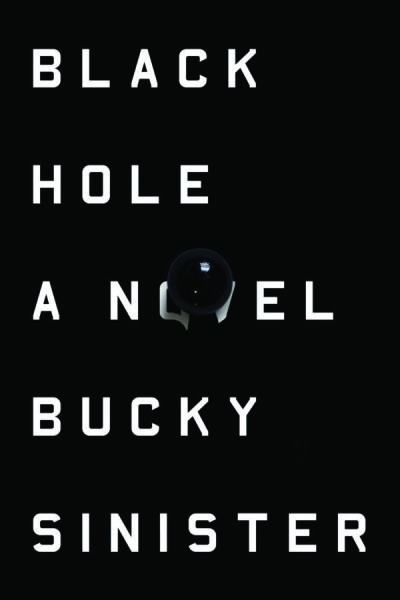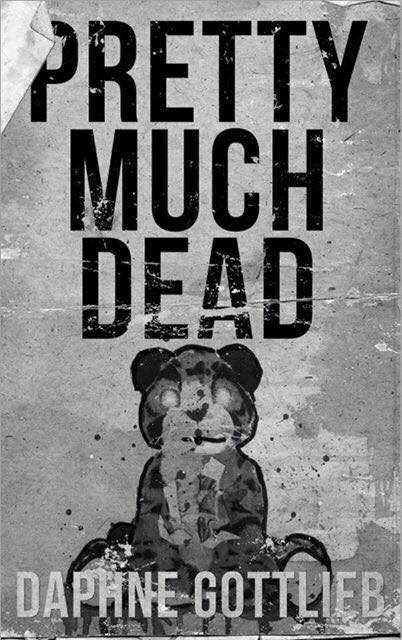“San Francisco is the America of America. Give me your tired, your poor.”
— Pretty Much Dead, by Daphne Gottlieb
Countless thinkpieces about San Francisco’s transition into a hyper-capitalist enclave, some better than others, have gone viral in recent years. Now it’s fiction’s chance to weigh in. In new summer releases, the three Bay Area authors Joshua Mohr, Bucky Sinister and Daphne Gottlieb have turned to fiction to explore the subterranean, and often invisible, humanity clinging to life in the ruins of a city that once was… well, something else.
 All This Life (Soft Skull Press), the fifth novel from San Francisco-based author Joshua Mohr, opens with a bizarre morning rush-hour tragedy on the Golden Gate Bridge. It’s not the first time, by far, that the landmark has been the site of destruction. Just this year, in over-the-top summer flick San Andreas, the bridge is destroyed by a tsunami brought on by The Big One; the latest Terminator film turns the bridge into a raceway to the end led by Arnold Schwarzenegger’s death-stare android brawn. That said, Mohr’s take on Golden Gate tragedy is much subtler, and acts as an entry point into a story of connection and family ties during a century where social success is measured in YouTube views and Twitter followers.
All This Life (Soft Skull Press), the fifth novel from San Francisco-based author Joshua Mohr, opens with a bizarre morning rush-hour tragedy on the Golden Gate Bridge. It’s not the first time, by far, that the landmark has been the site of destruction. Just this year, in over-the-top summer flick San Andreas, the bridge is destroyed by a tsunami brought on by The Big One; the latest Terminator film turns the bridge into a raceway to the end led by Arnold Schwarzenegger’s death-stare android brawn. That said, Mohr’s take on Golden Gate tragedy is much subtler, and acts as an entry point into a story of connection and family ties during a century where social success is measured in YouTube views and Twitter followers.
In the beginning, we are introduced to Paul and Jake, a father-son duo from Marin isolated from each other by depression, loneliness and malaise, as they head in a Prius over the bridge towards the city. “A Google search of his father’s favorite things would not return the boy as a page one result,” thinks 14-year-old Jake. When Jake captures a heart-wrenching video of a tragedy — which then goes viral — the novel is set into motion.
And then there’s Kathleen, a recovering alcoholic, who leaves behind her brain-injured son in Nevada to start a new life in San Francisco. After a few years and a repugnant relapse, she discovers it’s not so easy to start over, especially when she’s moved to place equally unstable — at least for anyone outside of the tech bubble:
She sees the construction cranes downtown, looming across the sky like huge, prehistoric birds. The development is driving out all of the character, and sometimes Kathleen imagines these cranes scooping up artists and plopping down tech employees in their place. She knows it’s only a matter of time until she’s ladled up too, replaced by a twenty-something making six figures for speaking computer code, the only foreign language that matters. What happens, she wonders, to a city — especially one like San Francisco, a place that has always been composed of immigrants and outcasts and transients and artists, a whole surrogate family of people who weren’t wanted in other places — what happens when it becomes as homogenous as a suburb?
 Bucky Sinister’s Black Hole (Soft Skull Press) opens with outcasts, transients and deep dives into a neo-futuristic subterranean San Francisco, where the tired and poor cling to a shrinking territory in the heart of the Mission.
Bucky Sinister’s Black Hole (Soft Skull Press) opens with outcasts, transients and deep dives into a neo-futuristic subterranean San Francisco, where the tired and poor cling to a shrinking territory in the heart of the Mission.



